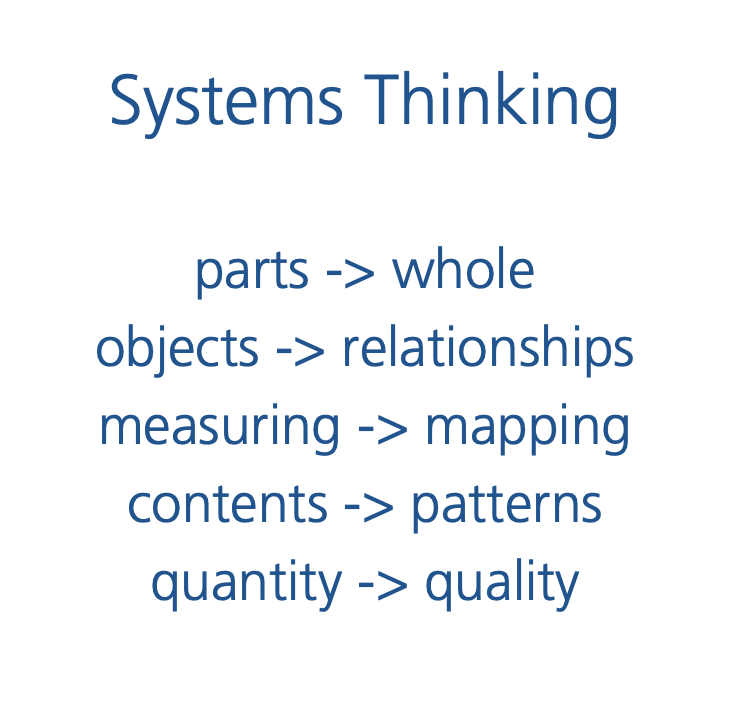
It was many years ago that “systems thinking” became a root of my thinking, teaching, and consulting. This history includes my general orientation to life as a young man — having the hunch that things are connected. It’s how I could make sense of things. My love of systems thinking grew in graduate school when I studied organizational behavior. My commitment to systems thinking as a discipline solidified in the early to mid 90s when I worked with Berkana Institute and Meg Wheatley.
There are many aspects of those early years of systems thinking that have continued to grow in me that I find myself inviting groups and teams to enculturate. Some of these teachings have become much more common place — people know that they need to work together, or have nuanced collaboration when something must be done together. Some of the systems thinking teachings remain challenging to implement — to integrate as ways of being among a group of people.
Recently I went through some old materials. Fun to see their centering clarity for then and for now.
“Network (things, people, places, times in connection) is the pattern common to all life. Meg Wheatley is one of the key teachers in my life. About organizations and about being good people together. One of her core tenets is that organizations are living systems — connected in networks. “Where we see life, we see networks,” she used to say.
And then, there are distinctions that I continue to find helpful. They are “shifts of emphasis” that guide context, and relieve us from the defaults of mechanical thinking.
Parts to whole. This is it, isn’t it. Restoring capacity to see the whole of things, to see context has a naturalness and a kindness to it.
Objects to relationships. So often I find myself working with people who are trying to familiarize themselves in the relational quality needed to be working with wholeness. I often say that it is our relations that give us robustness. Or, though an older reference, “it is the soft stuff that is the hard stuff.”
Measuring to mapping. Instead of solving problems with reductive measurements, it becomes more useful to mapping the interconnectedness. A change in one part of the system can change relevance of measurement.
Contents to patterns. In systems that are interconnected and unreplicable because of their constant changes, it is patterns that best inform me. I’m looking for ways to attend to what centers things over time, and to grow an ability to be with change. I continue to love the Zen phrase in all of this. “Everything is connected. Everything changes. Pay attention.”
Quantity to quality. Quantity can be exciting. Volume can be intoxicating. But I continue to learn that it is quality that lifts the heart. It is quality that goes with each of the above that grows spirit.
So, it’s a bit of flashback for me to look at these old materials and realize that I’m continuing to nuance and grow their application. I continue to learn that people want to do good work together. They want to live in a way that aligns with much more complicated patterns than simple linearity and binary application. I’m glad for oodles of colleagues and friends over the years that have brought their learning to this domain of systems thinking. I’m glad for the life that I see in people when invited to be more wise and more soulful in such notions.

Parts to Whole … this resonates for me in the ongoingness of my sensing about each of us born into wholeness … that we become “broken” not as a part of our inherent nature but my messages of conditionality from our parents, from our culture … and that we (I) work to reinhabit a sense of our true wholeness.